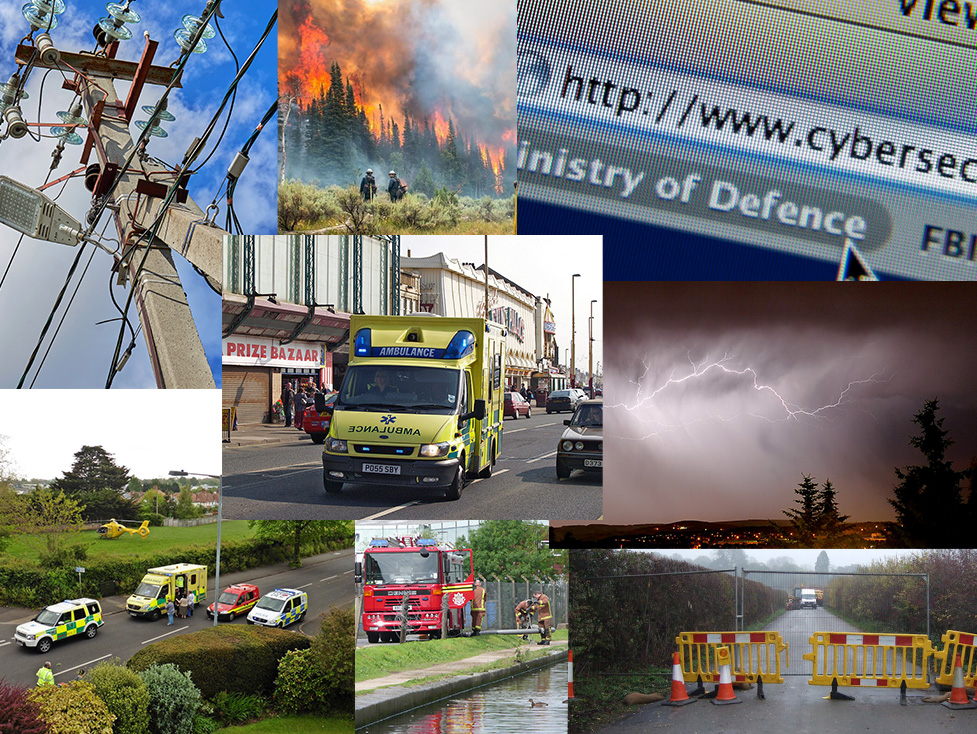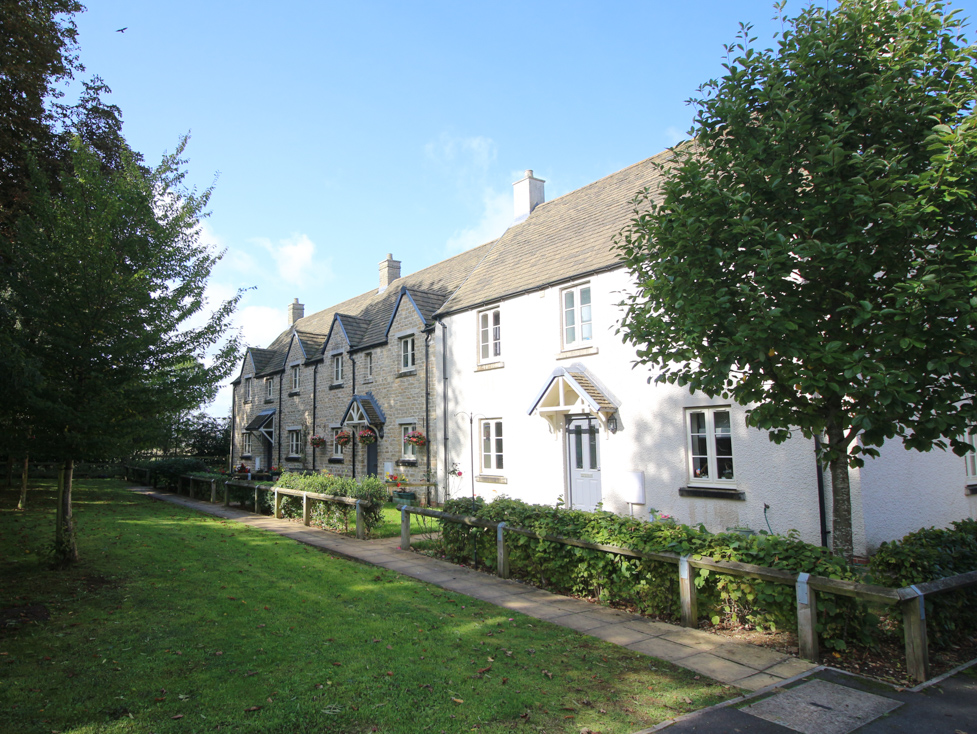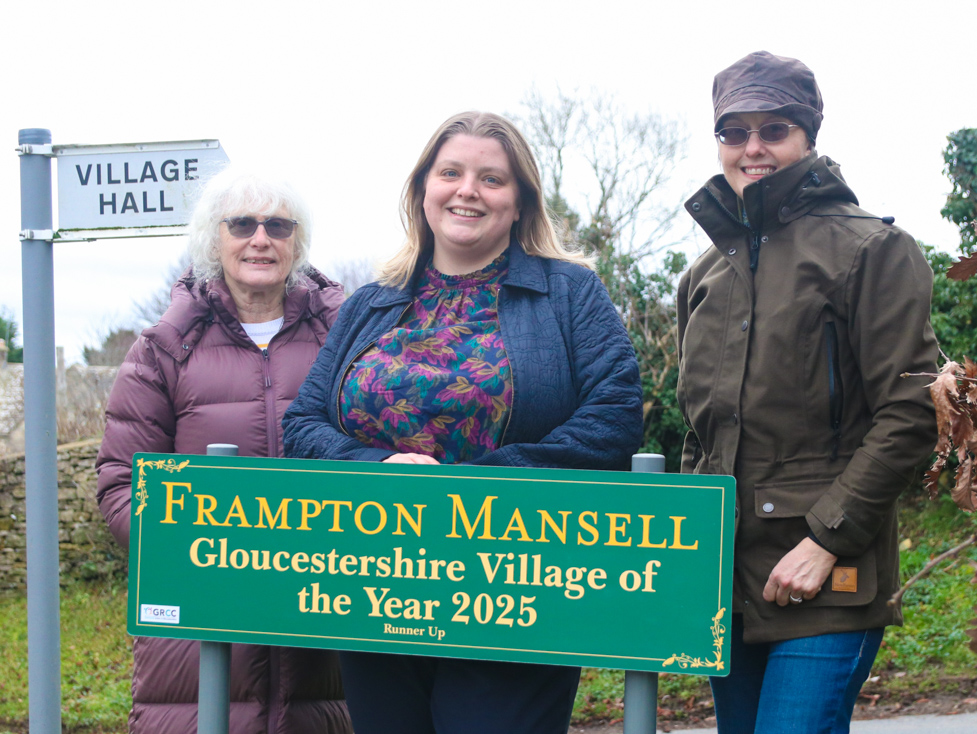- News & Events
- /
- Preparedness Month 2025 - Week 1

02 Sep, 2025
Preparedness Month 2025 - Week 1
September is Preparedness Month, organised in the UK by the Emergency Planning Society which runs a campaign on social media and other channels called "30Days30Ways". Below, GRCC's Community Resilience Officer Lucy Eccles gives us a round-up of the topics covered in Week 1 of Preparedness Month.
Have you thought about the different sorts of emergencies that your community could face? What are residents doing to prepare? Do your local risks differ from those of your neighbouring communities?
Answering these questions will help you understand the risks in your area, and how to increase resilience to such emergencies. By understanding and preparing for risks, you can significantly improve your ability to respond effectively, and recover from emergencies.
Emergencies may arrive with little or no warning, and the emergency services have to prioritise the most serious cases. Personal and community preparedness are therefore vital!
What is an emergency?
An emergency is any event or circumstance that causes or threatens:
- Death or injury
- Disruption to the community
- Damage to property or to the environment
These can be man-made (such as a cyber-attack) or natural (such as extreme weather).
Preparedness begins with awareness, which is why it is super-important to understand the specific risks your community may be vulnerable to.
The Gloucestershire Local Resilience forum (LRF) has put together a ‘ Community Risk Register ’ to help the public understand what the key risks are for Gloucestershire residents. Please give the risk register a read, and share it around your communities!
Here are some particular risks to think about during Week 1 of Preparedness Month:
Cyber Safety and Scammers
Every year millions of people lose money to scammers, but if you can recognise the signs of scam activity, then you can fight back!
Did you know that GRCC's DAISI Project has lots of resources available to help individuals and organisations improve their resilience against online fraud?
GRCC’s top tips to stay safe:
- Use strong passwords
- Install the latest software and updates
- Turn on 2-step verification
- Back up your data
- Be cautious with information
- Be aware of common scams
Contact our DAISI Project for information and advice around online scams. Email digital@grcc.org.uk or call 01452 528491.
Wildfires
Global warming has led to hotter, drier weather, which means higher risk of destructive wildfires.
However, wildfires can be prevented using some simple tips:
- Do not light open fires in the countryside
- Make sure cigarettes and other smoking materials are completely out
- Only use barbecues or camp fires in suitable and safe areas, and never leave them unattended
- Serious fires can start just from sunlight shining through glass. Take glass bottles and jars home, or put them in a waste or recycling bin
If you see a wildfire in the countryside, dial 999 immediately. Never tackle fires yourself.
Please see the National Fire Chiefs' Council website for more advice about preventing wildfires.
Power Cuts
What would you do if the power suddenly went out?
GRCC’s top tips top help you prepare for and cope with power cuts:
- Call 105 for information and advice in the event of a power outage. This number will connect you with your local electricity network operator - no matter who your supplier is!
- People with additional needs should be signed up to the Priority Services Register (PSR) . This is a free UK-wide service which makes sure that vulnerable people get advice and priority help when there’s an interruption to their electricity, gas or water supply.
- Keep a battery-operated torch in an accessible place, with spare batteries!
- Keep away from hazards such as power lines.
- During a power cut, turn off items such as irons, ovens, and electric fires so that they will not come back on unexpectedly when the power is restored. Unplug your TV and PC as they can be damaged if there is a surge when power goes back on.
- Stay warm! Keep the doors of unused rooms closed, and close curtains to keep the heat in.
Take a look at the National Grid’s 12 top tips for more advice.
Hopefully you now know a bit more about some of the risks affecting your community. Remember, preparedness begins with awareness!
The 30Days30Ways UK Campaign is running weekly live roundtable discussions on MS Teams during Preparedness Month, every Friday at 11am, starting on 5th September. You can join in the first one using this link , and the discussions will be available to view later on the 30Days30Ways Youtube channel. You can also follow the #30Days30Ways hashtag on social media, or contact 30Days30WaysUK@the-eps.org to sign-up for daily updates by email.
Look out for Lucy's next blog piece, for Week 2 of Preparedness Month, which will be on the theme of "Get Informed". It will cover Trusted Networks, Knowing Who to Call, and other useful ideas, information, and tips for being better prepared for emergencies in your community.
[Photo credit: images for the collage were all sourced from Wikimedia Commons and are used under the Creative Commons Sharealike License.]
Latest posts
-

-

By Peter Richardson Building from the Ground Up
-

